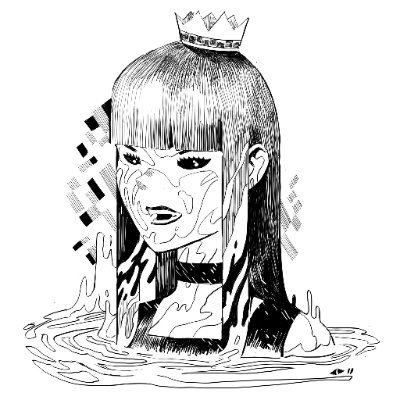Recycling 101
10KTF has dropped its latest “Recycling” mechanic, and it has caused a lot of disruption within the community. Whether you’re a proponent of the new sustainability measures or prefer some classic inflation, this guide will explain how Recycling works as well as some pros and cons of recycling to help you in the decision-making. Similar to Crafting, it is important to note that Recycling may be unavailable at times depending on current state of affairs in New Tokyo.

What is Recycling?
With an introduction to a new character in the lore, 10KTF brings us “Reese” who represents the new mechanic of “Recycling” within the project. In its simplest form, recycling allows 10KTF holders to convert their “finished” Level 1 items into Stockroom Blanks of the same kind. For example, if you hold a Level 1 Daypack that has been crafted against a PFP, you will have the option to burn – or “recycle” – it, and in return, your newly-created Blank Level 1 Daypack will be minted to your wallet that can be used for crafting. Recycling of a Genesis Level 1 item also comes with the reward of 10KTF’s newest token “G Tag”, and we go into further detail down below. Although Warm Wallet is supported by 10KTF, but in order to Recycle, the item being recycled must be held in the same wallet that is connected to the website.
Stockroom G Tags
If the “Crafted vs. Genesis” debate wasn’t heated enough, the G Tag item premiered in the Stockroom has produced quite the commotion. Although the use case for G Tags have not been released at time of writing, this item can only be minted by way of burning a finished, Genesis item in the 10KTF collection. Reusing the example above where a Level 1 Daypack is Recycled, burning a Genesis Level 1 Daypack means that the holder will not only receive a Blank Level 1 Daypack that can be used for crafting with an approved PFP, but the holder will also receive a G Tag, which is detailed as a “Consumable” item in the Stockroom collection.

The quantity of G Tags minted varies by rarity of the Level 1 Genesis item Recycled. The ratio of G Tags issued by rarity is as follows:
- 1 Common Level 1 Genesis item = 1 G Tag
- Battle Town points Recycled: 27 (Daypack) or 44 (High Tops)
- 1 Uncommon Level 1 Genesis item = 3 G Tags
- Battle Town points Recycled: 54 (Daypack) or 88 (High Tops)
- 1 Rare Level 1 Genesis item = 9 G Tags
- Battle Town points Recycled: 108 (Daypack) or 352 (High Tops)
- 1 Epic Level 1 Genesis item = 27 G Tags
- Battle Town points Recycled: 216 (Daypack) or 704 (High Tops)

Pros & Cons for Recycling
As more parent projects enter the ecosystem, Recycling creates a healthier economy by reducing supply in the main collection while simultaneously producing blanks for future crafting in the Stockroom. Recycling also allows holders of Level 1 items a chance to craft a new item with their PFPs without the need to invest in a new blank to accomplish this. Minting G Tags is another perk of Recycling Genesis items, but the use case of G Tags is unknown at the time of writing. Although there is tremendous speculation abound as to what G Tags will mean for holders, one thing that is certain is 10KTF’s methodical approach to game theory, so having one or more might prove valuable in the near future.
On the opposite hand, Recycling could entail burning an item of higher rarity in comparison to the item a holder’s PFP can craft. For those looking to preview the rarity of Level 1 items, Rareboy has created a solid solution with a Chrome Extension that will show rarity PFP preview when viewing partnered PFP’s on OpenSea. Furthermore, Recycling a Genesis item does mean foregoing those valuable Battle Town points accrued during missions as well as permanently reducing total supply of the Genesis items. The term “Genesis is King” has been the center of controversy within the community, but with the “



